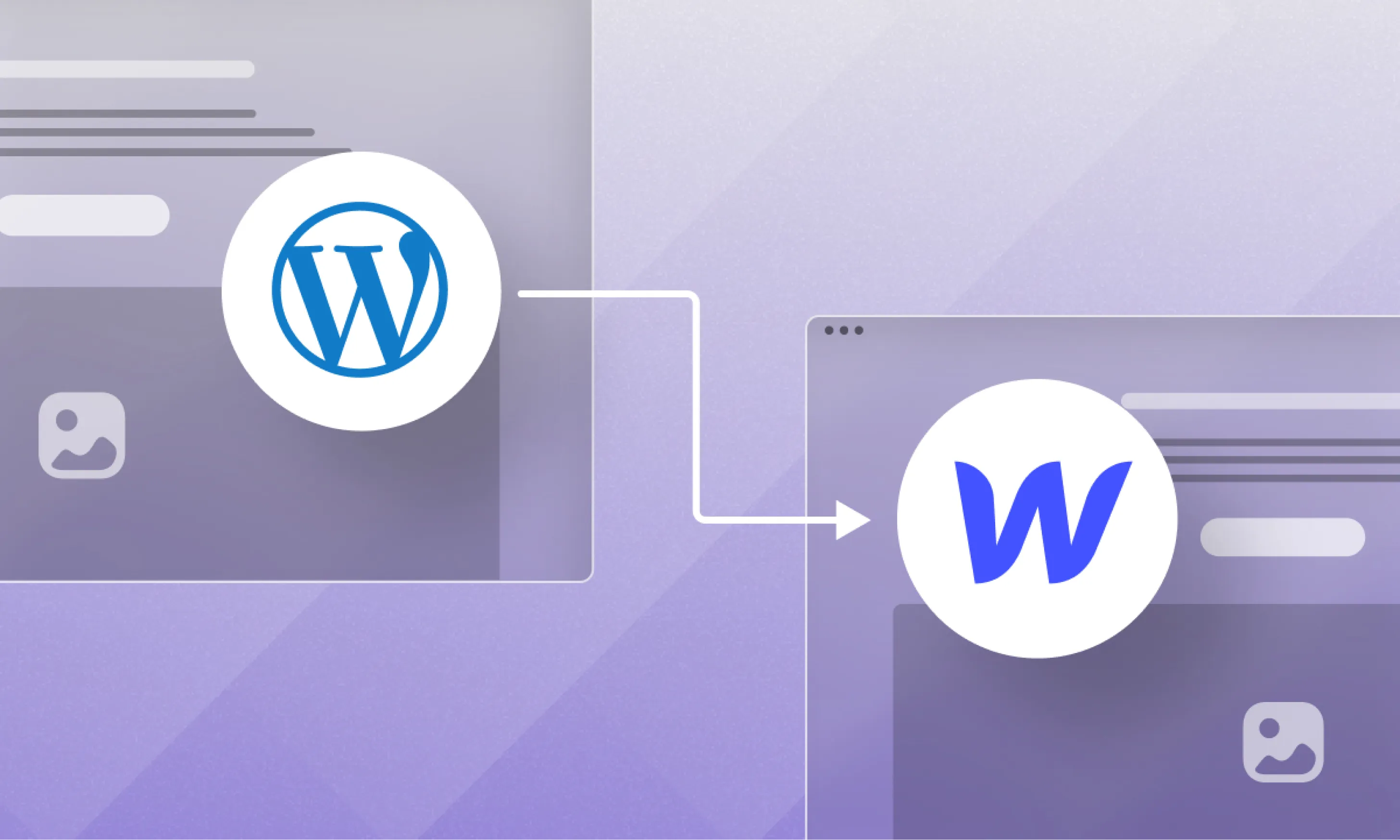Why Webflow is better than Wordpress

When it comes to building a website, there are countless options available to users, each with their own set
of benefits and drawbacks. Two popular platforms that are often compared are Webflow and WordPress.
While both platforms can be used to create professional-grade websites,
there are several reasons why Webflow might be a better choice for some users over WordPress.
1. Design flexibility:
One major advantage of Webflow is its design flexibility. Webflow is a website design and development platform that allows users to visually
design and build their websites, without having to write code.
This gives designers more control over the look and feel of their website, as they can directly manipulate design elements such as layout,
typography, and interactions. In contrast, WordPress relies on pre-designed themes, which can limit the customization options for designers.

2. Ease of use:
Webflow is also known for its user-friendly interface, which makes it easy for designers to create and publish their websites without
having to write code. This can be a major advantage for users who are not familiar with coding or who want to build their website quickly.
The platform also offers a wide range of templates and design elements, which can be customized to suit the needs of the user.

3.SEO:
When it comes to SEO, Webflow websites are built with search engines in mind, which means that they are designed to be easily indexed and ranked by search engines.
This can be a major advantage for users who want to ensure that their website is discoverable by their target audience.
Webflow also offers tools and resources to help users optimize their website for search engines, such as customizable metadata and
structured data support.

4.Security:
Security is also an important consideration for many users, and Webflow takes this seriously.
The platform has measures in place to prevent against common threats such as malware and hacking attempts,
which can be especially important for users who are concerned about the security of their website.
In contrast, WordPress websites may be more vulnerable to security threats, especially if they are not properly maintained
and updated.

5. Performance:
Webflow websites tend to be faster and more lightweight than WordPress websites, as they are built using clean, optimized code.
This can be especially important for users who want to ensure that their website loads quickly and performs well for their visitors.

6.Collaboration features:
Webflow also includes features that make it easy for teams to collaborate on website projects. These features include the ability to leave comments,
track changes, and see a history of edits made to the website.
This can be especially useful for larger teams or for projects that involve multiple stakeholders, as it allows everyone to
stay up to date on the progress of the project and provide input as needed.

7.Strong support community:
Finally, Webflow has a strong support community of designers and developers who are willing to help users troubleshoot issues and provide advice.
This can be a major advantage for those who are new to website design and development, as it allows them to get help and support when they need it.
The Webflow community is active on forums, social media, and other online platforms, making it easy for users to connect with others and get the help they need

Need any help with your website? we are here to help you out.
Schedule a free call.webp)



